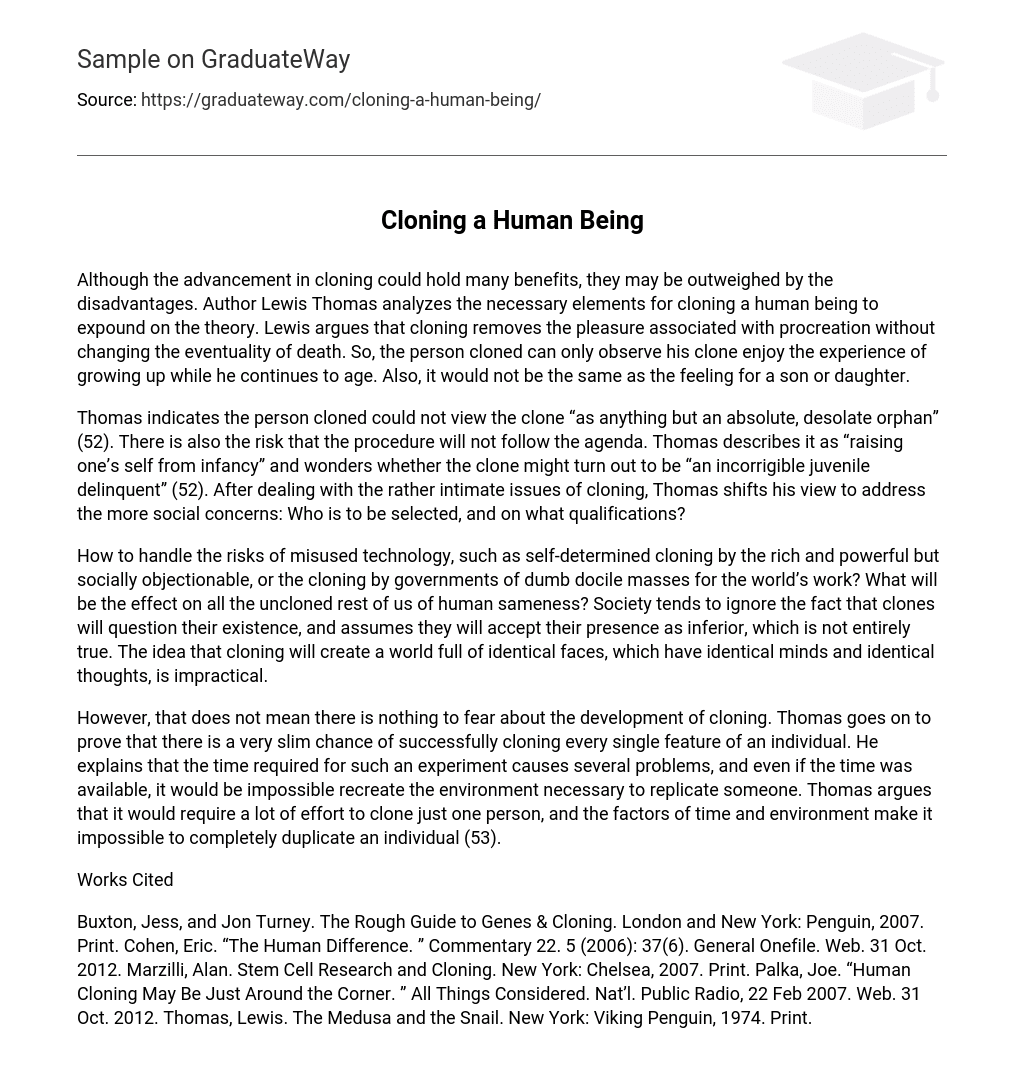Although there are potential benefits to cloning, such advancements may be overshadowed by drawbacks, according to author Lewis Thomas. Thomas explores the components required for human cloning to elaborate on this theory. He suggests that cloning eliminates the joy of procreation without altering the inevitability of mortality. As a result, the cloned individual can only witness their duplicate relish the process of maturing while they themselves continue to age. Additionally, the emotional connection one feels towards a genuine child would not be replicated in a clone.
Thomas expresses the idea that the cloned person would feel like a lonely orphan. He also highlights the possibility that the cloning process might not go according to plan, resulting in a troublesome individual. Thomas compares this process to raising oneself from infancy and questions if the clone could become an uncontrollable juvenile delinquent. After discussing these personal aspects of cloning, Thomas turns his attention towards societal concerns, such as who should be chosen and what criteria should be used for selection.
The risks associated with misused technology, such as self-determined cloning by the rich and powerful or the cloning of docile masses by governments for labor purposes, need to be addressed. What impact will human sameness have on the uncloned majority? It is often overlooked that clones will question their existence and may not necessarily accept their presence as inferior. The notion that cloning will result in a world where everyone looks the same, thinks the same, and has identical thoughts is unrealistic.
Despite the fears surrounding the development of cloning, Thomas argues that successfully cloning every single feature of an individual is highly unlikely. According to Thomas, the time required for such an experiment poses numerous challenges, and even if there was enough time available, recreating the necessary environment to replicate someone would be impossible. Thomas asserts that cloning just one person would demand significant effort, and the constraints of time and environment make it unachievable to fully duplicate an individual (53).
Works Cited
The sources used in this text include:
– Buxton, Jess, and Jon Turney. The Rough Guide to Genes & Cloning. London and New York: Penguin, 2007. Print.
– Cohen, Eric. “The Human Difference. ” Commentary 22. 5 (2006): 37(6). General Onefile. Web. 31 Oct. 2012.
– Marzilli, Alan. Stem Cell Research and Cloning. New York: Chelsea, 2007. Print.
– Palka, Joe. “Human Cloning May Be Just Around the Corner. ” All Things Considered. Nat’l. Public Radio, 22 Feb 2007. Web. 31 Oct. 2012.
– Thomas, Lewis. The Medusa and the Snail. New York: Viking Penguin, 1974. Print.





